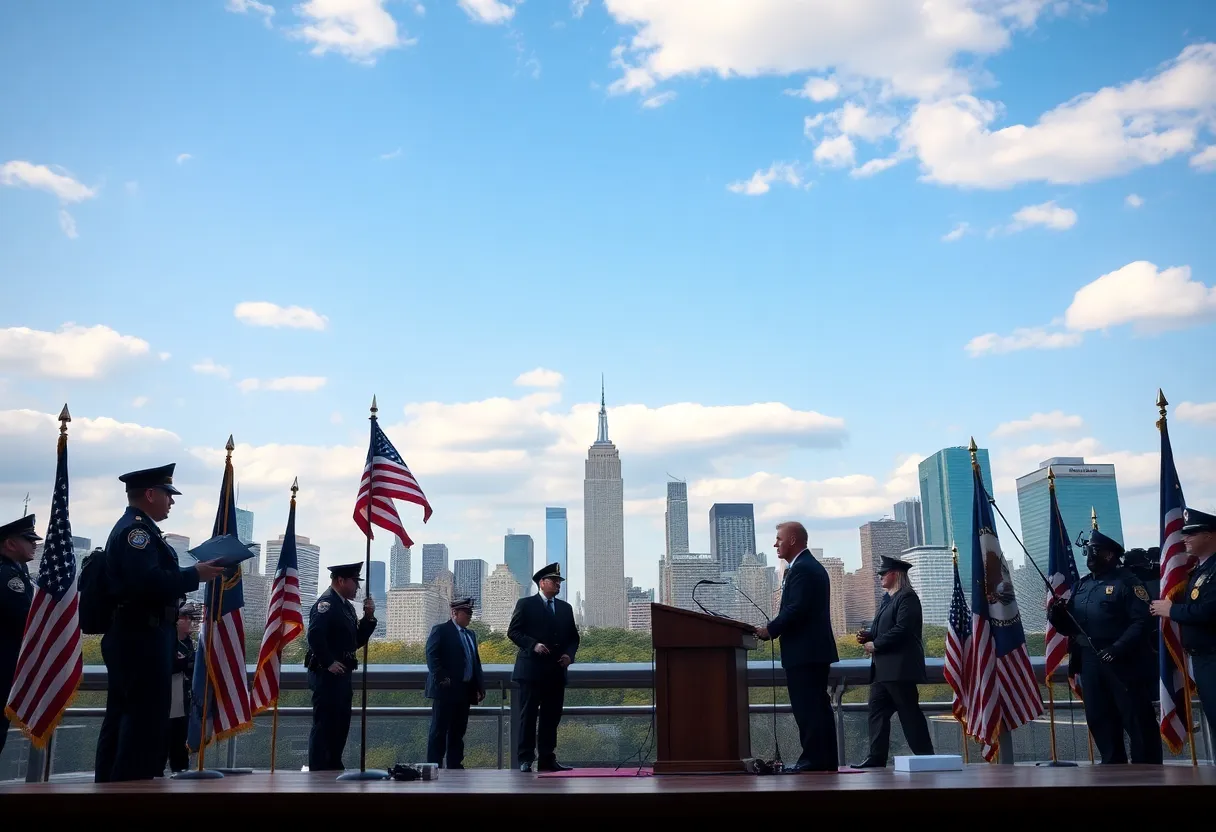News Summary
In a major political showdown, President Trump is contemplating the deployment of the National Guard to Chicago to tackle rising crime rates. Illinois Governor JB Pritzker firmly opposes this move, citing concerns over state rights and legality. The tension underscores broader ideological conflicts and the complexities of governing amidst crime concerns. As Chicago shows signs of decreased crime rates, local leaders emphasize the need for community-focused safety solutions instead of military intervention.
Trump and Pritzker in Heated Showdown Over National Guard Deployment
In a surprising turn of events, President Trump is considering deploying the National Guard to Chicago as a response to rising crime rates. This proposal, however, has been met with firm resistance from Illinois Governor JB Pritzker, who declared that the President is “neither wanted here nor needed here.” The back-and-forth has sparked a significant political clash, highlighting the ongoing tensions between state and federal authority.
A Political Feud Unfolds
At the heart of this confrontation is a classic battle of ideologies between two political leaders representing opposing parties. Trump is eager to showcase his strength and control over crime, making Chicago a focal point since his presidential campaign in 2016. Meanwhile, Pritzker’s staunch opposition echoes historical conflicts related to state sovereignty, reminding some of the national rifts that have occurred throughout U.S. history.
Legalities and Limitations
The prospect of sending the National Guard into urban areas is fraught with legal complexities. The President operates under Title 10 of the U.S. Code, which permits troop deployment only under extreme circumstances, such as invasion or rebellion, none of which are present in Chicago at this time. Pritzker has lashed out against what he perceives as an unprecedented violation of rights, deeming the move illegal and unconstitutional.
Chicago’s Crime Rate: The Facts
Despite Trump’s portrayal of Chicago as a “killing field,” local data shows a different picture. Recent reports reveal that crime rates have actually decreased significantly, with homicides down by 31% and shootings dropping by 36% since their peak in 2021. Chicago Mayor Brandon Johnson noted these encouraging trends, emphasizing that the community is more concerned about investing in public safety initiatives rather than bringing in military troops.
A Call for Accountability
Pritzker expressed strong sentiments about the implications of federal military presence. He warned that if citizens are harmed as a result of the deployment, he would pursue legal measures to hold those responsible accountable. Across the state, leaders are aligning in opposition to the idea of federal troops patrolling the city streets, stressing that residents do not desire military intervention.
Reminders of the Posse Comitatus Act
There are also considerations regarding the Posse Comitatus Act, which restricts the military’s role in domestic law enforcement. Any attempt to bypass this act could result in further legal hurdles for the federal government and stir additional controversy among the populace. Amid these developments, the Illinois Attorney General confirmed that no preemptive legal actions are currently in place against the federal proposal.
Looking Ahead
While tensions run high between Trump and Pritzker over potential military intervention, it’s clear that the local leadership remains committed to upholding the rule of law and addressing crime through community-focused approaches. Many Chicagoans are hoping that instead of military presence, the emphasis will be on collaborative efforts to enhance public safety and continue driving down crime rates.
Pritzker’s Preparedness
As the situation unfolds, Pritzker has asserted his commitment to protecting state rights and the well-being of Illinois citizens. The governor’s firm stance offers a clear message: federal intervention will not be welcomed. As the situation develops, both sides may need to find common ground to avoid escalating tensions further.
Final Thoughts
This clash between Trump and Pritzker over the National Guard reflects much more than a simple disagreement; it encapsulates the broader dialogue on governance, state rights, and public safety. As discussions continue, residents will be watching closely, hoping for solutions that truly benefit their communities.
Deeper Dive: News & Info About This Topic
- MSNBC: Pritzker Responds to Trump’s Threats
- The New York Times: Pritzker on National Guard
- CNN: Trump and Pritzker Analysis
- Encyclopedia Britannica: National Guard
- Democracy Docket: Trump Threats to Chicago

Author: STAFF HERE PETERSBURG WRITER
The ST PETERSBURG STAFF WRITER represents the experienced team at HEREStPetersburg.com, your go-to source for actionable local news and information in St Petersburg, Pinellas County, and beyond. Specializing in "news you can use," we cover essential topics like product reviews for personal and business needs, local business directories, politics, real estate trends, neighborhood insights, and state news affecting the area—with deep expertise drawn from years of dedicated reporting and strong community input, including local press releases and business updates. We deliver top reporting on high-value events such as Grand Prix of St. Petersburg, Localtopia, and SHINE Mural Festival. Our coverage extends to key organizations like the St. Petersburg Area Chamber of Commerce and St. Pete Downtown Partnership, plus leading businesses in finance, manufacturing, and healthcare that power the local economy such as Raymond James Financial, Jabil, and Bayfront Health St. Petersburg. As part of the broader HERE network, including HEREJacksonville.com, HEREOrlando.com, HERETallahassee.com, and HERETampa.com, we provide comprehensive, credible insights into Florida's dynamic landscape.



